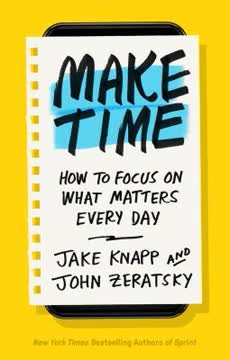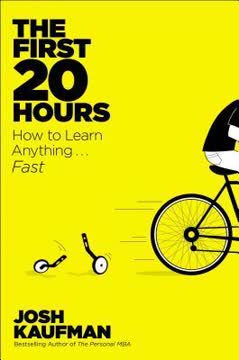가지 주요 요점
1. 빠른 기술 습득은 집중적이고 전략적인 노력이 필요하다
"이 책의 목적은 새로운 기술을 기록적인 시간 내에 습득하도록 돕는 것이다."
전략적 접근법. 빠른 기술 습득은 재능이나 타고난 능력에 관한 것이 아니라 체계적인 학습 접근법에 관한 것이다. 이는 사랑할 수 있는 프로젝트를 선택하고, 한 번에 하나의 기술에 집중하며, 명확한 목표 성과 수준을 정의하는 것을 포함한다. 이 방법은 완벽함보다는 양과 속도를 강조하여 학습자가 짧은 시간 내에 상당한 진전을 이루도록 한다.
시간 투자. 저자는 새로운 기술에서 눈에 띄게 잘 수행하기 위해 약 20시간의 집중적인 연습이 필요하다고 제안한다. 이는 인기 있는 "1만 시간의 법칙"에 도전하며, 적은 시간 투자로도 의미 있는 진전을 이룰 수 있음을 시사한다. 방해 요소를 제거하고, 전용 연습 시간을 만들며, 양과 속도를 강조함으로써 학습자는 기술 습득 효율성을 극대화할 수 있다.
2. 기술을 하위 기술로 분해하면 학습이 가속화된다
"기술이 충분히 분해되면, 가장 중요한 하위 기술을 식별하는 것이 훨씬 쉬워진다."
기술 분해. 기술을 구성 요소로 분해하면 학습자가 가장 중요한 요소에 먼저 집중할 수 있다. 이 접근법은 파레토 원칙을 따르며, 원하는 결과의 80%를 산출하는 20%의 하위 기술을 식별하는 데 도움이 된다.
우선순위 설정. 복잡한 기술을 더 작고 관리 가능한 하위 기술로 분해함으로써 학습자는:
- 연습할 가장 중요한 구성 요소를 식별할 수 있다
- 기술의 범위에 압도되지 않도록 할 수 있다
- 빠른 개선을 위한 고효율 영역에 집중할 수 있다
- 구조화된 학습 경로를 만들 수 있다
3. 빠른 피드백 루프는 기술 개발을 향상시킨다
"연습에 빠른 피드백 소스를 많이 통합할수록 기술을 더 빨리 습득할 수 있다."
빠른 개선. 빠른 피드백 루프는 학습자가 실수를 신속하게 식별하고 필요한 조정을 할 수 있게 한다. 이는 성과와 개선 영역에 대한 즉각적인 정보를 제공하여 학습 과정을 가속화한다.
피드백 소스. 효과적인 피드백은 다양한 소스에서 올 수 있다:
- 성과를 기록하고 검토하는 자기 평가
- 즉각적인 분석을 제공하는 기술 도구
- 실시간 지도를 제공하는 경험 많은 코치나 멘토
- 동료 학습자의 피드백
여러 피드백 소스를 통합함으로써 학습자는 자신의 진전을 종합적으로 이해하고 목표 지향적인 개선을 할 수 있다.
4. 의도적인 연습은 기술 향상에 필수적이다
"주변 연습만으로는 개선되지 않았다."
집중된 노력. 의도적인 연습은 성과를 향상시키기 위해 기술의 특정 측면에 의식적으로 집중하는 것을 포함한다. 이러한 유형의 연습은 단순히 같은 행동을 반복하는 것보다 더 효과적이다.
연습 전략:
- 각 연습 세션에 대한 구체적인 목표 설정
- 복잡한 기술을 더 작은 구성 요소로 분해
- 약점에 집중
- 지속적인 피드백을 받고 이에 따라 조정
- 집중력을 유지하기 위해 짧고 강렬한 연습
의도적인 연습은 더 많은 정신적 노력을 요구하지만, 수동적이거나 집중되지 않은 연습보다 훨씬 더 나은 결과를 낳는다.
5. 수면은 기술 통합에 중요한 역할을 한다
"효과적인 기술 습득, 특히 운동 기술 습득은 수면이 필요하며, 이는 기술을 장기 기억으로 통합하는 데 중요한 역할을 한다."
뇌 가소성. 수면은 뇌가 새로운 정보와 기술을 처리하고 통합하는 데 필수적이다. 수면 중에 뇌는 새로 습득한 기술과 관련된 신경 연결을 강화하여 이를 더 영구적이고 접근하기 쉽게 만든다.
최적의 학습. 기술 습득을 극대화하려면:
- 통합을 강화하기 위해 수면 전에 새로운 기술을 연습
- 학습 기간 동안 일관되고 질 좋은 수면을 목표로 함
- 서로 충돌하는 기술을 연습하는 것을 4시간 이내에 피함
- 연습 세션 후 짧은 낮잠을 고려하여 통합을 증진
연습 일정과 수면 패턴을 맞춤으로써 학습자는 기술 습득과 유지력을 크게 향상시킬 수 있다.
6. 환경은 기술 습득에 큰 영향을 미친다
"기술 습득을 지원하기 위해 의지를 투자하는 가장 좋은 방법은 연습에 대한 이러한 부드러운 장벽을 제거하는 것이다."
환경 설계. 학습과 연습에 적합한 환경을 조성하는 것은 빠른 기술 습득에 필수적이다. 이는 방해 요소를 제거하고, 필요한 도구에 쉽게 접근할 수 있도록 하며, 학습 목표를 지원하도록 주변을 구조화하는 것을 포함한다.
최적의 학습 환경을 위한 전략:
- 잠재적인 방해 요소 제거 (예: 알림 끄기)
- 전용 연습 공간 설정
- 필요한 도구와 자료를 쉽게 접근할 수 있도록 유지
- 학습 목표를 상기시키는 시각적 단서 사용
- 공개적인 약속이나 학습 파트너를 통해 책임감 부여
환경을 최적화함으로써 연습을 시작하는 데 필요한 의지를 줄이고 일관되고 집중된 학습 세션의 가능성을 높일 수 있다.
7. 정신적 장벽을 극복하는 것은 새로운 기술을 배우는 데 필수적이다
"초기 연구에서 적어도 절반은 혼란스럽지 않다면, 당신은 가능한 한 빨리 배우고 있지 않은 것이다."
불편함 수용. 새로운 기술을 배우는 것은 종종 불편함, 혼란, 좌절감을 느끼는 것을 포함한다. 이러한 감정을 실패의 징후가 아닌 학습 과정의 일부로 인식하는 것이 진전을 위해 중요하다.
정신적 장벽을 극복하기 위한 전략:
- 초기 혼란을 성장의 신호로 인정하고 수용
- 초기 성과에 대한 현실적인 기대 설정
- 낙담을 극복하기 위해 긍정적인 자기 대화 사용
- 큰 목표를 더 작고 달성 가능한 이정표로 분해
- 작은 승리와 진전을 축하
도전을 성장의 기회로 재구성함으로써 학습자는 초기 어려움을 극복하고 선택한 기술에서 빠른 진전을 이룰 수 있다.
8. 최소한의 실용적인 기술로도 충분하다
"우리는 적은 노력으로 우리가 가치 있게 여기는 결과를 목표로 하고 있다."
실용적 초점. 많은 기술에 있어 기본적인 수준의 능력을 달성하는 것만으로도 상당한 이점을 얻을 수 있다. 이 "최소한의 실용적인 기술" 접근법은 학습자가 숙달을 추구하지 않고도 빠르게 기능적인 수준에 도달할 수 있게 한다.
최소한의 실용적인 기술 접근법의 이점:
- 실용적인 목표의 빠른 달성
- 실제 상황에서 기술을 더 빨리 적용할 수 있음
- 초기 성공을 통한 동기 부여 증가
- 더 적은 시간에 여러 기술을 배울 수 있는 유연성
- 원할 경우 추가 숙달을 추구할 수 있는 옵션
최소한의 실용적인 기술 수준에 집중함으로써 학습자는 빠르게 실용적인 이점을 얻고 추가 시간을 투자할지 여부를 결정할 수 있다.
9. 기술을 다시 배우는 것은 초기 습득보다 더 빠를 수 있다
"우리의 뇌는 우리가 생각하는 것보다 더 쉽게 변할 수 있다."
신경 가소성. 뇌의 적응 능력과 새로운 신경 연결을 형성하는 능력 덕분에 기술을 다시 배우는 것이 초기 습득보다 더 빠르고 쉬울 수 있다. 이는 특히 운동 기술이나 한때 잘 연습된 기술에 해당된다.
효과적인 재학습을 위한 전략:
- 기본 개념 검토로 시작
- 기술이 가장 많이 저하된 영역에 집중
- 근육 기억과 기존 신경 경로 활용
- 새 정보를 이전에 배운 개념과 연결
- 집중적으로 연습하여 휴면 기술을 빠르게 재활성화
재학습은 뇌의 놀라운 적응력을 보여주며, 오래된 기술을 되살리거나 기존 기술을 새로운 맥락에 맞추려는 사람들에게 격려를 제공한다.
마지막 업데이트 날짜:
FAQ
What's The First 20 Hours about?
- Learning New Skills Quickly: The book focuses on rapid skill acquisition, suggesting that about twenty hours of focused practice can lead to proficiency in a new skill.
- Systematic Approach: Author Josh Kaufman outlines a method for breaking down skills into smaller subskills, setting performance targets, and practicing deliberately.
- Personal Experience: Kaufman shares his journey of learning various skills, such as yoga, programming, and playing the ukulele, to demonstrate the effectiveness of his approach.
Why should I read The First 20 Hours?
- Overcome Frustration Barriers: The book provides strategies to break through the initial frustration that often accompanies learning new skills.
- Practical Framework: It offers a clear framework for skill acquisition, making it easier to start and maintain motivation throughout the learning process.
- Inspiration to Act: Kaufman encourages readers to pursue their interests without fear of failure, motivating them to take action on their "want to do" lists.
What are the key takeaways of The First 20 Hours?
- Ten Principles of Rapid Skill Acquisition: Kaufman outlines principles like focusing on one skill at a time and defining a target performance level.
- Effective Learning Techniques: The book emphasizes the importance of research and feedback in mastering new skills.
- Mindset Matters: A growth mindset is crucial; Kaufman stresses that anyone can improve their skills with practice and persistence.
What is the 20-hour rule mentioned in The First 20 Hours?
- Time Commitment: The rule suggests that dedicating twenty hours of focused practice can lead to significant proficiency in a new skill.
- Structured Learning: Kaufman encourages planning practice sessions to ensure they are efficient and targeted toward specific subskills.
- Realistic Expectations: This rule sets a realistic expectation for learners, making skill acquisition less daunting and more attainable.
How does Kaufman suggest overcoming the frustration barrier in The First 20 Hours?
- Invest Time Wisely: He suggests that around twenty hours of focused practice can help move past initial learning difficulties.
- Practice Intelligently: By breaking down skills into smaller subskills, you can focus on critical components first, making learning less overwhelming.
- Emphasize Quantity Over Perfection: Early practice should prioritize quantity and speed rather than perfection, allowing for faster skill acquisition.
What are the ten principles of rapid skill acquisition in The First 20 Hours?
- Choose a Lovable Project: Select a skill that genuinely excites you to maintain motivation throughout the learning process.
- Focus on One Skill: Concentrate efforts on mastering one skill at a time to achieve noticeable progress.
- Define Your Target Performance Level: Clearly articulate what "good enough" looks like for your skill to guide your practice effectively.
What are the ten principles of effective learning in The First 20 Hours?
- Research the Skill: Spend time gathering information about the skill and related topics to prepare for practice.
- Jump in Over Your Head: Embrace confusion as a natural part of learning; it indicates you're pushing your boundaries.
- Create Scaffolds and Checklists: Use tools like checklists to streamline practice and ensure all necessary steps are covered.
How does Kaufman apply the concept of deconstruction in The First 20 Hours?
- Breaking Down Skills: Deconstruction involves analyzing a skill and breaking it down into its fundamental components, making it easier to learn.
- Identifying Key Subskills: Focus on the most important subskills that will yield the greatest results, rather than trying to learn everything at once.
- Creating a Learning Plan: By deconstructing skills, learners can create a structured plan that prioritizes practice on the most impactful elements.
What is the importance of fast feedback loops in skill acquisition according to The First 20 Hours?
- Immediate Correction: Fast feedback loops allow learners to receive immediate responses to their actions, helping them identify and correct mistakes quickly.
- Enhanced Learning: This immediate feedback accelerates learning by reinforcing correct techniques and discouraging incorrect ones.
- Motivation Boost: Seeing quick improvements can motivate learners to continue practicing, as they can track their progress in real-time.
What is the lovable project concept in The First 20 Hours?
- Choosing a Skill: A lovable project refers to selecting a skill or activity that genuinely excites and motivates the learner, making practice feel less like a chore.
- Increased Engagement: When learners are passionate about their chosen skill, they are more likely to commit time and effort to practice, leading to better outcomes.
- Sustained Interest: This concept encourages individuals to pursue skills that align with their interests, ensuring they remain engaged throughout the learning process.
How does Kaufman apply these principles in real life?
- Personal Examples: Kaufman shares his experiences learning skills like yoga and programming, detailing how he applied the principles to achieve proficiency.
- Structured Practice: He emphasizes the importance of structured practice sessions, often dedicating specific time blocks to focus on each skill.
- Feedback Loops: Kaufman incorporates fast feedback loops into his practice, allowing him to adjust and improve quickly based on his performance.
What are some memorable quotes from The First 20 Hours and what do they mean?
- "The lyf so short, the craft so longe to lerne.": This quote from Geoffrey Chaucer highlights the importance of seizing the opportunity to learn new skills despite time constraints.
- "You can improve any skill, provided you’re willing to practice.": This emphasizes the growth mindset and the belief that anyone can learn and improve with effort.
- "Work smarter, not harder.": This encapsulates Kaufman's approach to skill acquisition, focusing on strategic practice rather than sheer volume of time spent.
리뷰
The First 20 Hours는 다양한 평가를 받고 있다. 일부는 새로운 기술을 20시간 안에 배우는 실용적인 접근법을 칭찬하며, 새로운 기술 습득을 위한 체계를 제공한다고 말한다. 비평가들은 이 책이 불필요한 세부사항과 개인적인 일화로 채워져 있다고 주장한다. 많은 독자들은 첫 몇 장을 유익하다고 생각하지만 나머지는 반복적이라고 여긴다. 독자들은 이 개념을 높이 평가하지만 더 짧은 형식으로 압축될 수 있었다고 느낀다. 일부는 저자의 예시가 흥미롭다고 생각하는 반면, 다른 이들은 그것을 무관하거나 지루하다고 본다.
Similar Books















